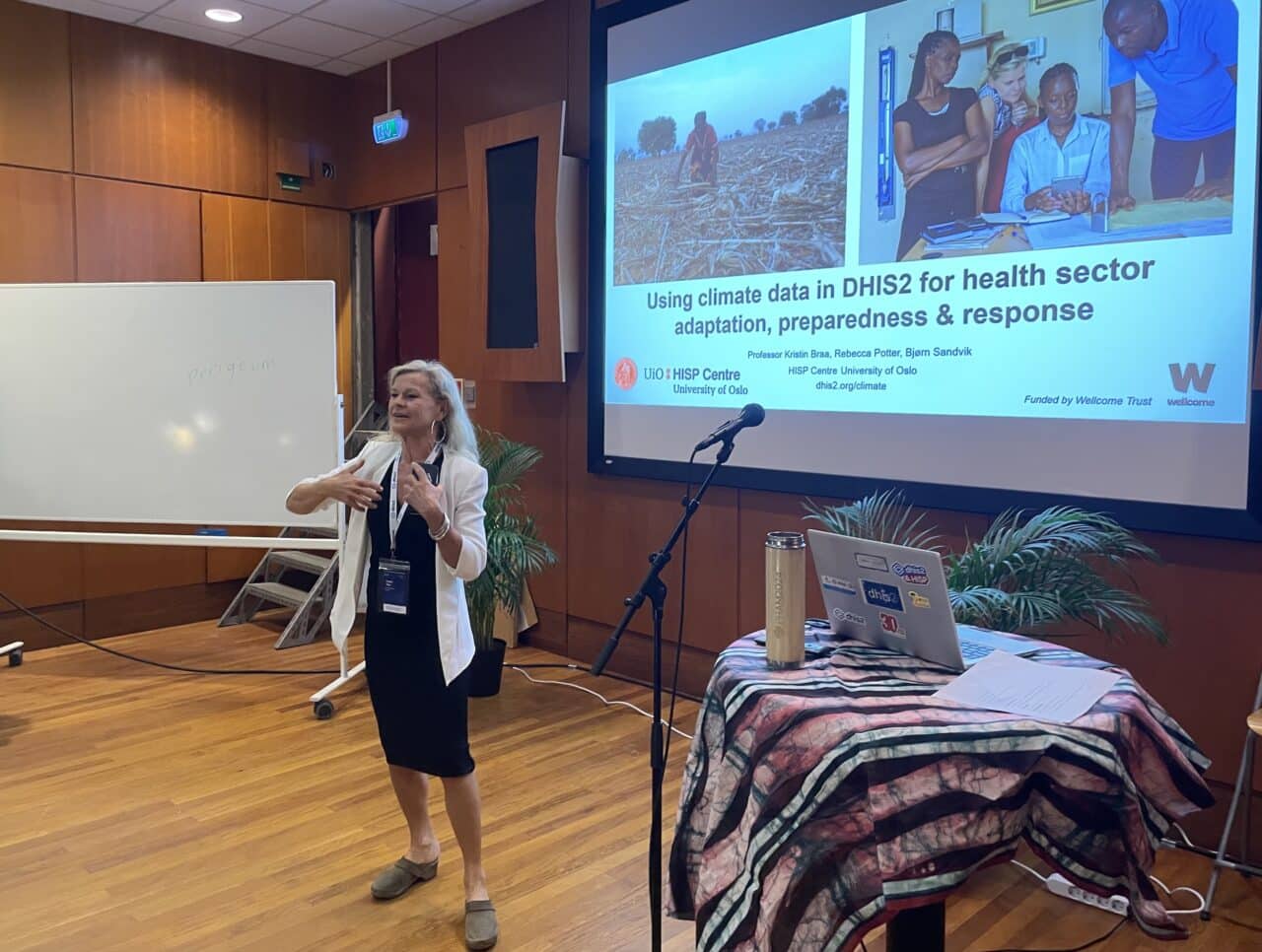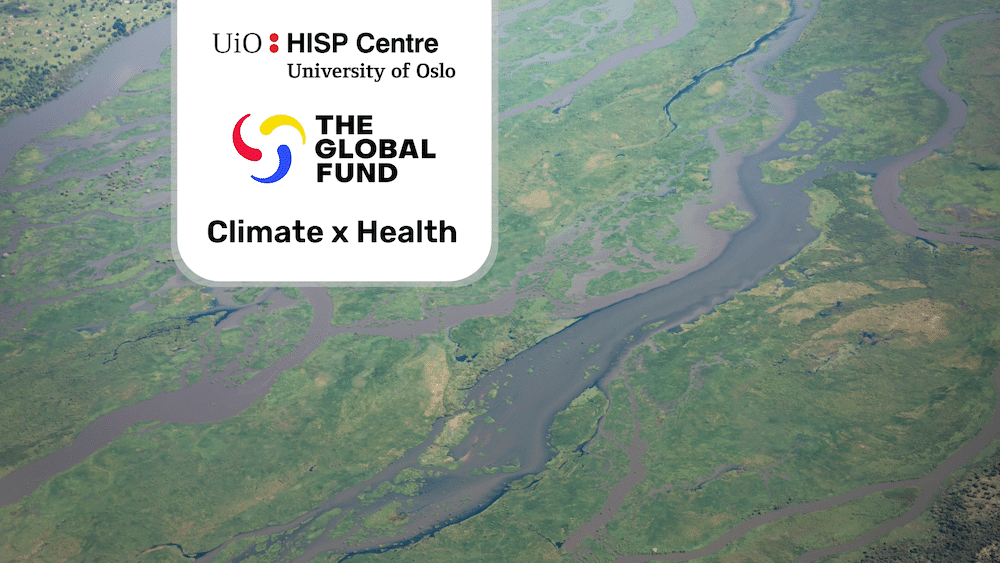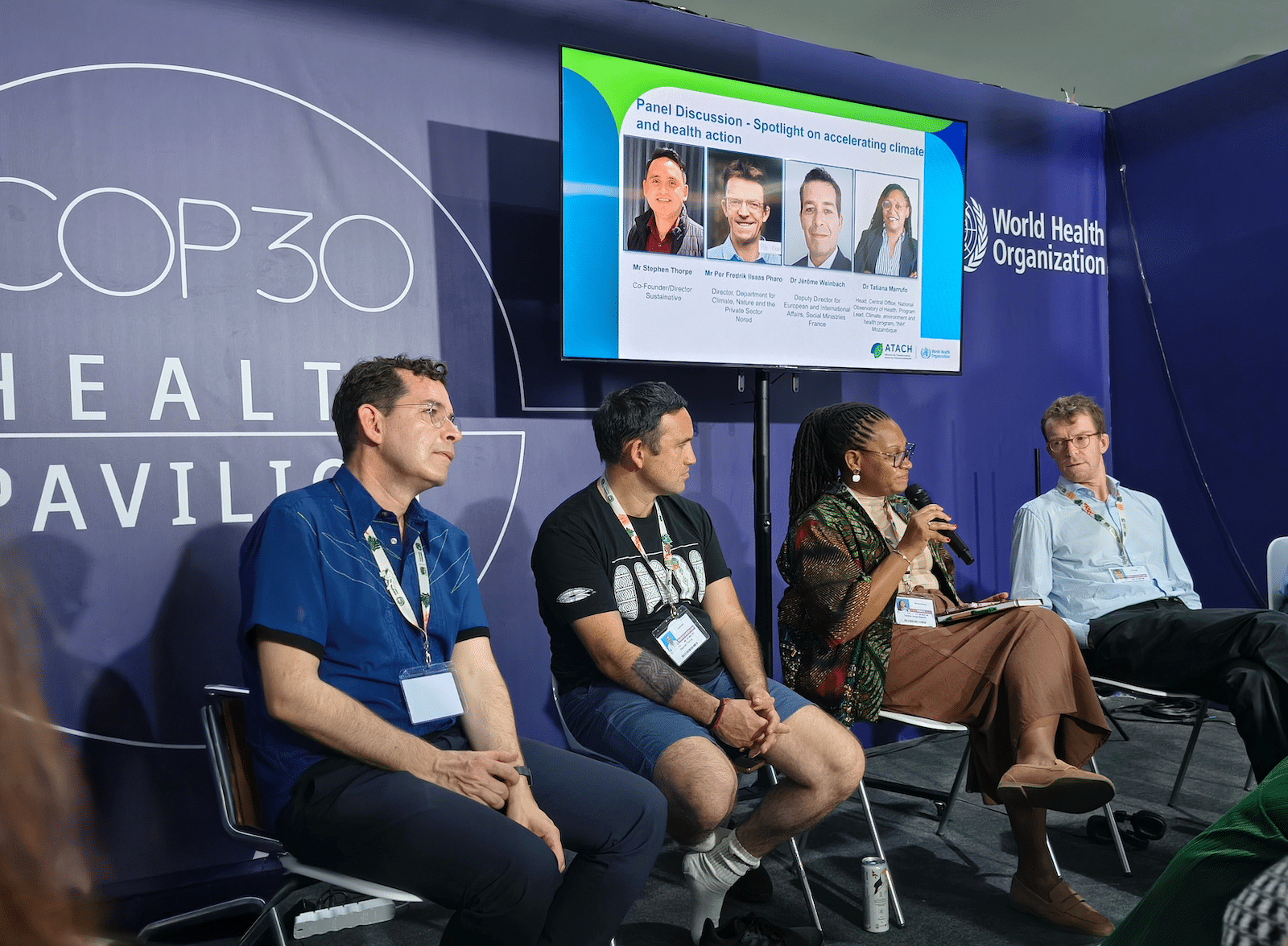
Sharing lessons learned from year 1 of the DHIS2 Climate & Health project
In a report to the Wellcome Trust, the HISP Centre at the University of Oslo shares lessons learned that have helped inform our approach to developing and implementing innovative climate-health tools with stakeholders in low- and middle income countries
In March 2024, the HISP Centre at the University of Oslo (HISP UiO) launched the DHIS2 Climate & Health project, supported by funding by the Wellcome Trust. A key deliverable for the first phase of this project was to review previous climate-health pilots with DHIS2, and to document how the learnings from them—and from the first year of our current project—have informed our development of new open-source tools for climate and health, our approaches to stakeholder engagement, and our strategies for bringing DHIS2 climate and health systems to scale in low- and middle-income countries.
This evaluation is presented in a report prepared by HISP UiO, which includes several elements:
- Case study 1: The Challenge of Climate Data Integration and Harmonization (Grenada, Uganda) and the Development of the DHIS2 Climate App
- Case study 2: Barriers to Routine Use of Predictive Modeling and Forecasting of Climate-Sensitive Diseases (Mozambique, Laos) and the Development of the Chap Modeling Platform
- Case study 3: Using DHIS2 to Incorporate Existing Climate & Health Use Cases into Routine Health Information System Architecture (Togo)
- Knowledge Sharing & Dissemination: HISP-coordinated activities to share learnings from this project, including posters from each of the 10 pilot countries.
- List of Additional Publications: Research conducted and published and/or made publicly available through direct support from this project.
We are happy to share this report publicly to further support our goal of contributing to the global body of knowledge on climate and health, and providing the DHIS2 community with inspiration and best practices that can be drawn upon to support climate and health projects in additional countries.


